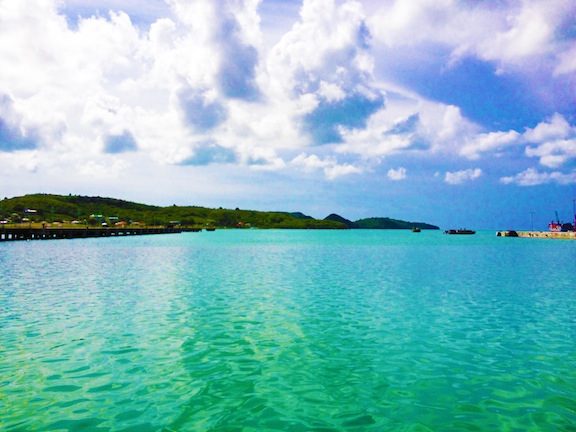Above: St John’s Harbour in Antigua (CJ Photo)
By Alexander Britell
Can Antigua be the Caribbean’s version of Singapore?
That’s the stated goal of the new government of Prime Minister Gaston Browne, whose Antigua and Barbuda Labour Party won the country’s mid-June elections.
Antigua and Barbuda’s government says its objective is to turn the country into an “economic powerhouse in the Caribbean, not unlike tiny Singapore in Southeast Asia,” according to the country’s new Governor-General, Dr Rodney Williams.
The new Governor-General revealed the plan during his Throne Speech on Friday, vowing to ramp up efforts to attract foreign direct investment, particularly in the next 12 months.
So far, the strategy seems to be bearing some fruit.
The same day Browne took office, he signed a memorandum of agreement with Chinese investor Yida Zhang for a $740.7 million USD tourism project, with another two hotel projects approved last month: one with United Arab Emirates-based investor Sheikh Tariq bin Faisal Al Qassimi for $120 million and another with a pair of St Kitts and Nevis-based companies.
That came after a deal signed at the end of 2013 with Sandals Resorts International to bring a new Beaches resort to the property, and the creation of a new Citizenship by Investment programme, both of which came under the previous government led by Dr Baldwin Spencer.
And tourism will be crucial to any kind of economic renaissance in a country and a region that are hyper-dependent on the sector, and Williams pointed to several new developments on the way: the Royal Antiguan hotel will soon be sold, Williams said, with a new hotel to be build on the property.
The Hodges Bay Club will be resuscitated, and the Half Moon Bay Hotel “has attracted new interests with a great likelihood of being resurrected,” the Governor General said.
The country also recently announced a new project to revamp the harbour and port of St John’s, and to “transform the Point area and turn a run-down neighbourhood into a vibrant economic zone,” Williams said.
In 2013, Antigua and Barbuda brought in around $138 million in foreign direct investment, according to data from the United Nations Economic Commission for Latin America and the Caribbean, a 3 percent improvement from the previous year.
But it’s been a decidedly uphill climb for the Eastern Caribbean country that is still recovering from the fallout from the collapse of the $7 billion Ponzi scheme orchestrated from Antigua by now-jailed financier Allen Stanford, who was convicted in 2012 and sentenced to 110 years in prison.
And turning Antigua into a Caribbean Singapore won’t be without challenges.
The country’s economy is projected to grow by 1.6 percent this year, the sixth-lowest figure in the Caribbean region, just ahead of St Vincent and the Grenadines.
In May, the International Monetary Fund said the country’s economy was “facing headwinds.”
Last year’s growth was lower than projected, and the fund warned of the country’s “unsustainable fiscal situation and the large share of nonperforming loans in the banking system.”
But Antigua’s Singapore-style vision may have some promise, as Caribbean Journal’s Paul Hay wrote last year.
“Smallness is typically seen as a disadvantage to competitiveness, but Singapore shows that this can be overcome,” Hay wrote.
